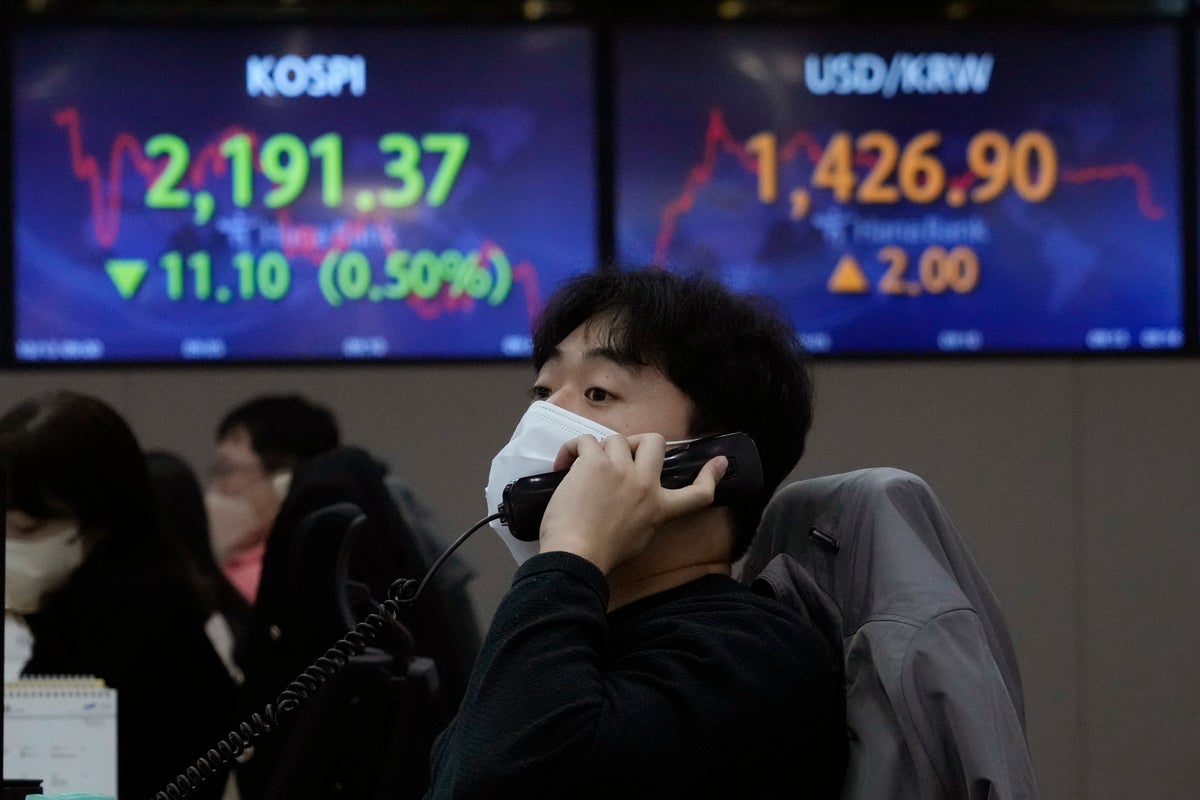
Asian stock markets fell Thursday ahead of an update on U.S. inflation that investors worry will reinforce the Federal Reserve's plans for more aggressive interest rate hikes.
Shanghai, Tokyo, Hong Kong and Seoul declined. Oil prices edged lower.
Wall Street's benchmark S&P 500 ended lower Wednesday after inflation in producer prices edged down but still was near a multi-decade high.
The more closely watched consumer price index was due out later Thursday.
“A hawkish reaction to the data could add more pressure to stocks,” Anderson Alves of ActivTrades said in a report.
The Fed and other central banks in Europe and Asia have raised rates by unusually big margins to cool inflation that is at multi-decade highs, but traders are afraid they might tip the global economy into recession.
The Shanghai Composite Index lost 0.1% to 3,021.76 and the Nikkei 225 in Tokyo sank 0.5% to 26,275.00. Hong Kong's Hang Seng tumbled 1.2% to 16,510.25.
The Kospi in Seoul fell 1.4% to 2,171.41 while Sydney's S&P-ASX 200 gained less than 0.1% to 6,651.00.
India's Sensex opened down 0.6% at 57,295.57. New Zealand and Southeast Asian markets declined.
On Wall Street, the S&P 500 gave up 0.3% to 3,577.03 on Wednesday for its sixth daily decline after a report showed inflation in producer prices is very hot.
Prices rose 8.5% in September, down from March's peak of 11.7%. But prices rose 0.4% compared with August following two months of declines.
Consumer inflation on Thursday and retail sales data Friday could give a clearer picture of where prices are hottest and how consumers are reacting.
The S&P 500 is down 25% so far this year and close to a two-year low.
The Dow Jones Industrial Average slipped 0.1% to 29,210.85. The Nasdaq composite lost 0.1% to 10,417.10. Both are on pace for a weekly loss.
Minutes from the Fed's last meeting, released Wednesday, underscored the central bank's commitment to taming “unacceptably high” inflation.
Also Wednesday, the British pound weakened against the U.S. dollar after the governor of the Bank of England, Andrew Bailey, confirmed Britain's central bank will not extend beyond Friday an emergency debt-buying plan to stabilize financial markets.
The dollar's exchange rate has been rising against other currencies due to the Fed's rate hikes and recession fears.
The yen declined further to 146.85 to the dollar after hitting a 24-year low of 145.85 on Wednesday.
The prompted expectations Japan's central bank might intervene again to prop up the yen's exchange rate following an earlier intervention in September.
In energy markets, benchmark U.S. crude gained 5 cents to $87.32 per barrel in electronic trading on the New York Mercantile Exchange. Brent crude, the price basis for international oil trading, added 18 cents to $92.63 per barrel in London.
The euro declined to 96.02 cents from 97.06 cents.







